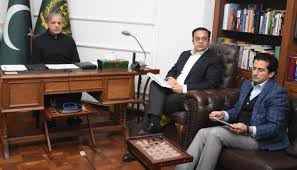CPEC: $ 2 billion Suki Kinari hydropower project to start power generation by November

Islamabad: The Suki Kinari hydropower project, a significant 884-megawatt initiative under the China Pakistan Economic Corridor (CPEC) portfolio, is set to start power generation by November 2024 at a total cost of US $2 billion.
These updates were shared by Shah Jahan Mirza, the Managing Director of the Private Power Infrastructure Board (PPIB), during a workshop focused on establishing a robust mechanism for tariff-based bidding of hydropower projects in Pakistan.
The workshop, a collaborative effort between PPIB and the Agence Française de Développement (AFD) from France, brought together various stakeholders such as government officials, industry experts, investors, local and international banks, and representatives from the energy sector.
A notable highlight of the event was the presentation of draft generic Request for Proposals (RFP) documents for hydropower Independent Power Producers (IPPs), developed by a Joint Venture comprising Tractebel GmbH from Germany and NDC, in alignment with international best practices and relevant local regulations. This gathering aimed to engage in discussions on the crucial aspects of tariff-based bidding and its importance in the advancement of hydropower projects in Pakistan.
Shah Jahan Mirza emphasized PPIB’s successful efforts in attracting private investments for the establishment of hydropower IPPs. Evidence of this success includes the completion of four hydro IPPs with a combined capacity exceeding 1,000 MW, along with 13 other hydro IPPs totaling 5,455 MW currently in various stages of processing. Among these, the 884 MW Suki Kinari project is slated for operation by November 2024, situated on the Kunhar River in the Khyber Pakhtunkhwa province. The project is being developed by Suki Kinari Hydro (Pvt) Ltd in partnership with China Gezhouba Group Company Ltd, following the Independent Power Producer (IPP) model.
In addition to hydropower, Mirza highlighted PPIB’s successful facilitation in the implementation of 54 wind/solar/bagasse-based IPPs, totaling 2,785 MW. As Pakistan progresses towards achieving energy security, sustainability, efficiency, and competitiveness, initiatives such as this workshop are pivotal in shaping the country’s energy landscape.
Mirza praised the consultants for their dedication and expertise in crafting a robust framework, emphasizing that this marks a significant step towards awarding projects through competitive bidding, departing from the current system. Esteemed speakers at the workshop delved into the intricacies of the RFP, highlighting its key features and potential to streamline the bidding process for hydropower projects.
The workshop served as a platform for fostering dialogue, exchanging ideas, and building consensus on the path forward to accelerate the development of hydropower projects in Pakistan, aiming to reduce generation costs.
The participants expressed their commitment to collaborative efforts in achieving the common goal of ensuring a sustainable, reliable, cost-effective, and environmentally friendly energy supply for the nation.





